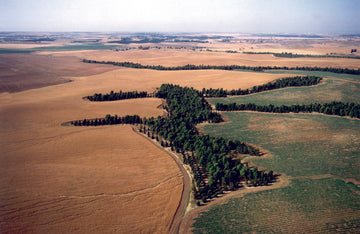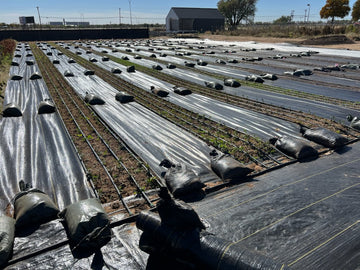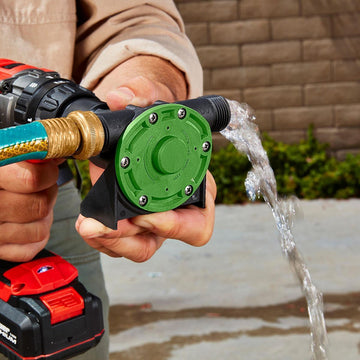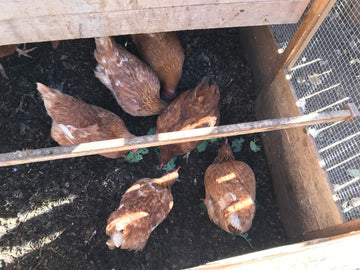With the rise of the internet, and content publishing through the web, knowledge has increased, giving the world access to expert advice and proven methods. And one amazing success story is how Israel is making their deserts blossom. They have managed to turn their curse of poor soil, arid climate, and little water, into a blessing for the whole world with their water technologies and unique methodologies for raising fruitful and healthy plants. And their success should be exciting for us in West Texas, because even though our climate is arid, it is not nearly as harsh as the climate in their Negev desert. So let’s review how Israel is making their deserts blossom.
In 1867 Mark Twain toured the land of Israel known back then as Palestine. here’s how he described it:
"…a desolate country whose soil is rich enough, but is given over wholly to weeds – a silent mournful expanse…A desolation is here that not even imagination can grace with the pomp of life and action….We never saw a human being on the whole route…There was hardly a tree or a shrub anywhere. Even the olive and the cactus, those fast friends of the worthless soil, had almost deserted the country."

Mark Twain wouldn’t even recognize the land today. Out of rocky soil, swamps, and even out of deserts, Israelis have created gardens, vineyards, and farms with some of the most innovative techniques in the world.

Even before Israel became a state in 1948, Jews by the thousands came to live there in communal farms. And the land was not exactly flowing with milk and honey. The coastal plains were swampy. The Galilee in the Judean Hills were rocky, and the southern half of the country was mostly desert. The Jewish settlers faced a number of obstacles, from bad soil, Bedouin Raiders, to malaria carrying mosquitoes overtaking the coastal plains in the Jordan Valley.


And instead of giving up, and leaving the land, they went to work, beginning with draining the swamps, spraying the land, and changing the flow of water in irrigation canals to interrupt the mosquitoes breeding. Their first efforts were a success, and in less than 20 years after Israel’s statehood, the country was officially malaria free. But this was just the beginning. You see how one good foundation opens up possibilities for another foundation to be laid. Now, the Jewish settlers were free to focus on making the desert bloom in the coastal plains. Citrus groves replaced the swamps in the Jordan Valley. What was once the center of the malaria epidemic, now became the country’s breadbasket. The Negev desert blossomed with newly planted forests and vineyards. And the Arava, once the most arid part of Israel, became the site of a flourishing vegetable industry. All of this was accomplished in the first 20 years of Israel’s statehood. In that time, Israel more than doubled their standard of living, and now they are using their experience to help other countries.

So how did they do it? More than half of Israel’s land is desert, and they have a severe water shortage. Moses led the Israelite to a country that has no oil, no water, poor soil, and they had to make the best use out of it. Thousands of years ago, Moses had to strike a rock to get water in the desert. Today, Israel is taking a slightly different approach, using technology and creativity.

One thing that Israel excelled at, and a valuable lesson that we can all learn, is that Israel would see risk factors or curses, and turn them into blessings. And this is very true in their history. The Jewish people have always been able to somehow turn a curse into a blessing. They have been able to take a disadvantage, and turn it into an advantage. A notable example in the Bible, in the book of Genesis, is when God used Joseph, the son of Jacob. And what appeared as an unfortunate series of circumstance for Joseph, God used as blessing for the world at that time, to save much people alive during a great 7 year famine. So, as you consider your own harsh landscape for gardening, you need have the mindset like the Israelis, of how can I turn this curse into a blessing. What good can come from what seems like an unfavorable growing condition.
In Israel, the freshwater supply was not enough to support a growing country, so Israel started looking west to the Mediterranean. The Mediterranean Sea has become Israel’s greatest natural resource because of their water technologies. Israel is producing 450 million cubic meters of drinkable water a day through a process called Sea Water Reverse Osmosis. Water can go from the ocean to the faucet in less that 90 minutes. And Israeli technology is now being used in more than 40 countries around the world. And thanks to the Mediterranean Sea, Israel may soon have something that was once unthinkable, a water surplus.

Many farmers are getting water for their crops literally out of thin air. Ancient Israelites used stones to collect the dew every morning. Now, and Israeli company is using plastic trays to do the same.

Every morning, these trays channel the dew straight into the roots of the plants. They also prevent weeds from growing between the plants and reduce water usage by up to 50 percent. Israeli farmers have always made good use of their water, but it wasn’t long before they realized that in order to survive, they also needed to start reusing it. Today, Israel recycles 80% of its waste water.
Israelis developed a way to purify wastewater using ultraviolet light. This treated water is then used to irrigate crops. 60% of the water that is irrigating fields in Israel is produced water, and not natural water.
Under the Negev desert, there is an underground ocean too salty to drink or desalinate. So Israeli settlers found a new way to use it. And instead of fighting against nature, they learned it is better to cooperate and coordinate with what you have. One Israeli company has brought the ocean to the desert by building fish farms using the warm salty water from underground. It is ideal for raising saltwater fish like tilapia, sea bass, and barramundi.

Their operation is working without chemicals, without anything, and it is very healthy, friendly for the environment, and they are making good money. Even the fish waste is put to use every week. At one fish farm, the water in the tanks are replaced, and pumped underground to irrigate a nearby olive grove. The fish waste in the water makes an ideal natural fertilizer, and the olives are growing around the fish farm, and are doing very well without any other chemicals, only by the nutrients of the fish.
Israel found new ways to use less water. Once a barren strip of desert, the Arava now has 600 farms supplying more than 60% of Israel’s exports of fresh vegetables. In the Arava, sometimes they might get 20 millimeters of annual rain fall. A very harsh climate. The driest parts of the deserts are blooming with the help of a process called drip irrigation.

Drip Irrigation was invented by an Israeli engineer named Simcha Blass. He got the idea for drip irrigation after seeing a tree that was larger than the others around it. After digging around the roots, he found it was being watered by a drip leak in an underground pipe. And it was not until plastic was introduce that he was able to experiment with drippers that would emit water in small drops. Soon after, they boosted their crop yield by 50%, and use 40% less water to do it.

Even before “organic” was a popular word, Israel was implementing organic techniques in their farms. They had the same problems every other farmers and gardeners have. How do you get rid of the pests? And their answer was to fight bugs with more bugs. Every single thing in nature has a natural enemy that eats it or attacks it. For the pests that attacked their crops, they started breeding different insects that were predators to the pests that ate their crops.
They solved an agricultural problem with how to pollinate greenhouse plants. In greenhouses which are climate controlled, you do not have winds or natural pollination. So they had to find other methods of pollination. Their solution was to breed bumble bees. The bees collect pollen for food, and they have to go and work even in cold weather conditions. Since they do not have stores of honey in the hive, they have to go to work, saving the farmers money because instead of paying people, the bees are doing the pollinating. And unlike people, they don’t miss a single flower. Once farmers started using bees for pollination, the yield of the tomato crops increased by 25%.

They also found creative ways to get rid of rodents. Instead of using poison, which is not ecologically friendly, they found that having owl barns to be an amazing solution. Two owls can capture an average of 2000-5000 mice per year.

You see here how wonderful God’s creation is. Every single thing has a reason and a purpose. And when you use it with wisdom and understanding, animals and insects can do so much good for us, for the world, for farmers, and for the environment.
So the question becomes for us, how can we use what seems like a disadvantage, and a curse, here in the dry and arid climate of West Texas, and turn it into a blessing? How can we make our own dry and clay soil blossom, while being water wise?





